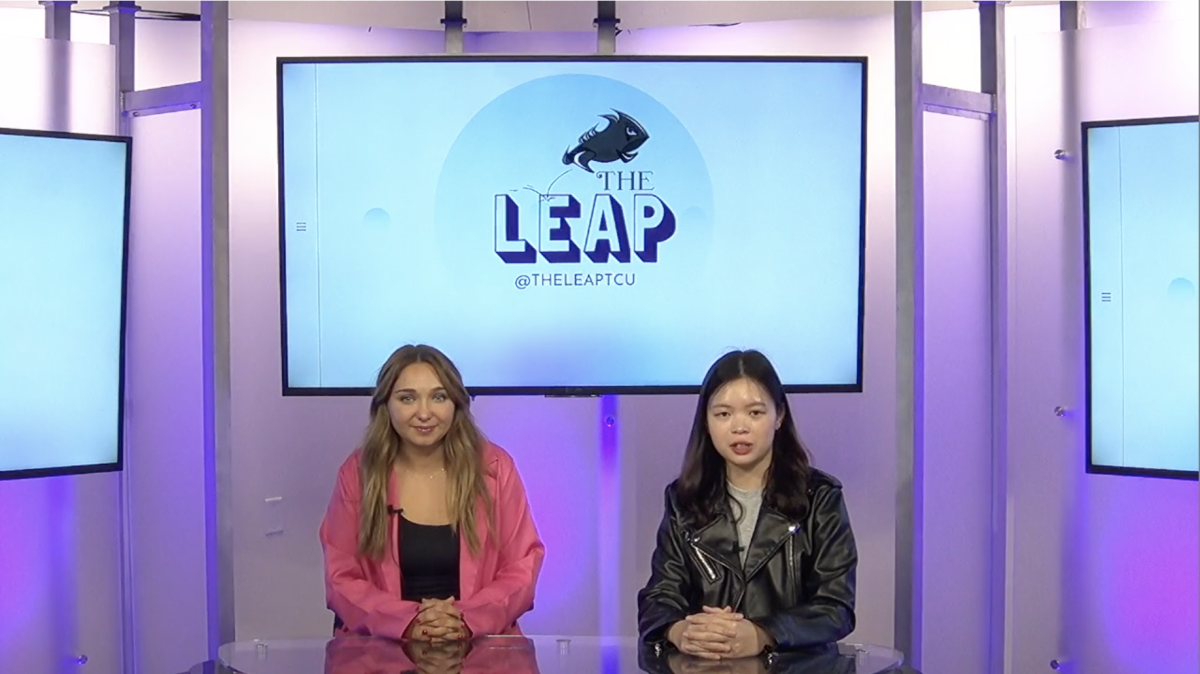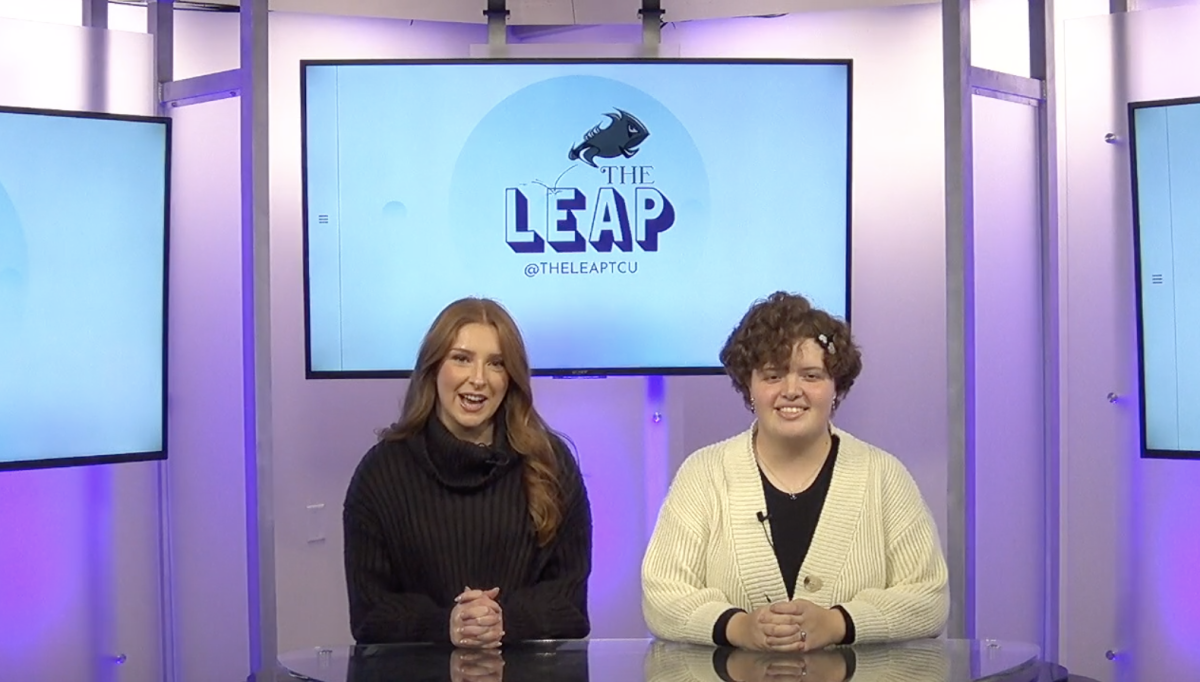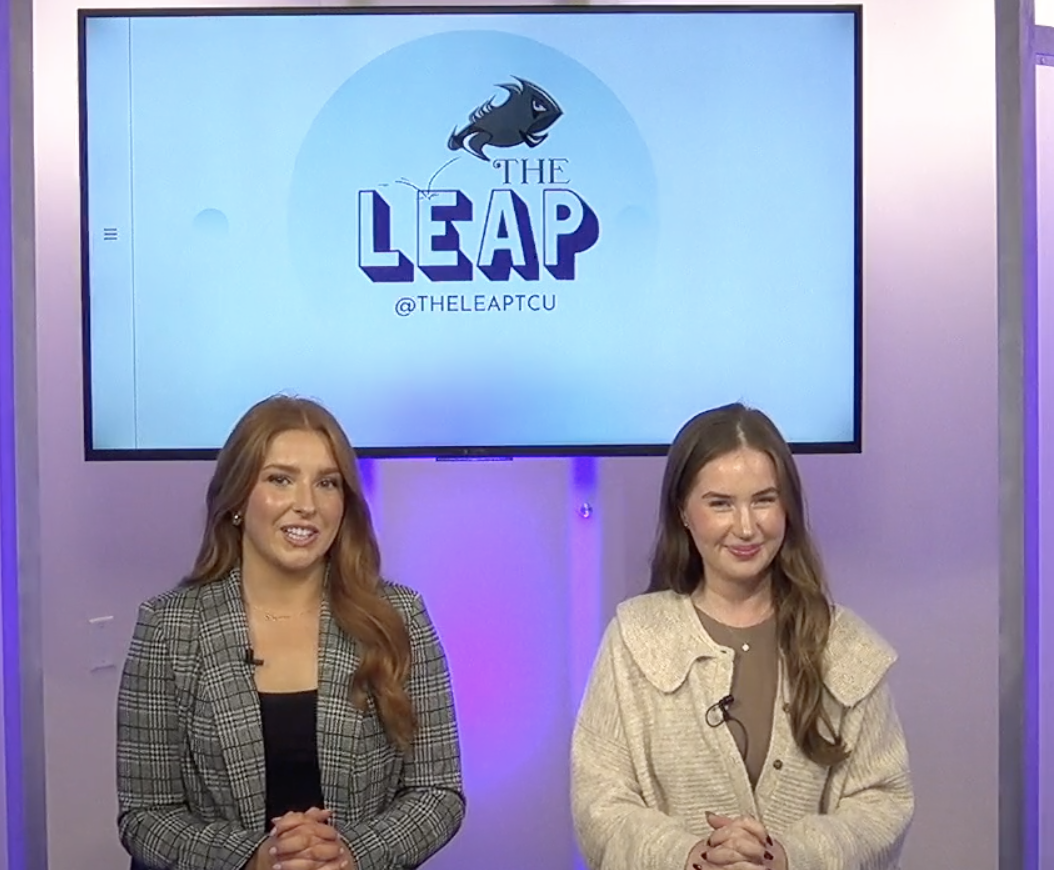Graham McMillan, a candidate for Student Government Association’s Vice President of External Affairs, recently came under fire for his campaign signs, which read “Graham ‘Cracker’ McMillan for SGA VP External.” A student advisor took issue with the nickname, however, and asked McMillan to cover the word “Cracker” on the sign because of its “negative racial connotations.”
The local FOX affiliate, along with The Daily Skiff, caught wind of the issue and ran a rather lighthearted story on Nov. 1 calling attention to the situation, pointing out McMillan’s “catchy addition to his name” as well as the fact that “other students” didn’t seem to find anything wrong with the signs. The story also notes McMillan’s positive take on the situation, making lemonade out of lemons, it seems, by using different color tape and designs to cover up the word “cracker” to spice up the signs and give them a little more pop. All and all, the story reads, Graham won’t stop using the nickname, although he understands how the word might be taken out of context. Controversy adverted, crisis solved and story covered, right? What’s the big deal about a name, anyway?
The problem with both McMillan’s sign and the Fox KDFW spin on the situation is that these negative racial connotations don’t merely go away when covered with multicolored tape. The problem with politicians, student government candidates as well, using the word “cracker” to promote themselves to the public is not just that people might be offended.
In the classroom, when I have taught topics like race in America, issues that always come up are the tendencies to consider racism as an individual malice harbored within someone’s identity—the notion that people are either racist, or they are not. However, racism is much more insidious than just an individual disposition that results in “negative connotations” or hurt feelings.
Racism is a larger systemic function of society, found not only in the feelings harbored by the few, by also by the words, phrases or conceptions ingrained into our very social fabric. So when people say or promote imagery that is racist in nature, regardless of whether or not they understood what they were doing or if they were really nice and caring people, the impact isn’t just some murky and ambiguous affect of “negative connotations.” The impact is an implicit affirmation of the status quo, a tacit acceptance of worn-out racial markers of difference. The imagery behind the word “cracker” harkens back to old antebellum racial hierarchies and, while it’s hard to distinguish historical roots from urban myths, the etymology of the word has been linked to the slavemaster’s “crack” of the whip. At any rate, the signs are problematic not just because the word offends, but rather, because the word affirms: it accepts a worldview that subscribes to a particular kind of status quo, one that draws from old, tired and problematic conceptions of race.
It doesn’t matter whether or not McMillan meant for the word to bring up that kind imagery. Perhaps the lesson here is that words are powerful, and the way words are deployed does more than just persuade people one way or the other. Words can function as a scalpel or a knife. They can heal or they can harm; words can contest or avow the status quo. Unfortunately, McMillan’s nickname, especially in the context of a political campaign, resorted to tired metaphors, descriptors and worldviews that do nothing more than reemphasize the same tapered racial categories that only narrow—instead of broaden—our conception of race in America.
With McMillan’s signage controversy, what was revealed to us, unfortunately, were the difficulties and reluctance of our community to engage in an honest conversation about race. With McMillan and Fox KDFW’s handling of the situation—a lighthearted “what’s the big deal?” kind of reaction—we see a failed opportunity to investigate race and racism and a failed opportunity to collectively reflect on why “cracker” or any other racial signifier might be more than just a silly word. We fail to learn anything, really, except, perhaps, that if you inadvertently do something distasteful, the solution is to laugh it off, cover it up and it goes away.
Tyler Branson is a PhD student in Rhetoric and Composition from Norman, Okla.






